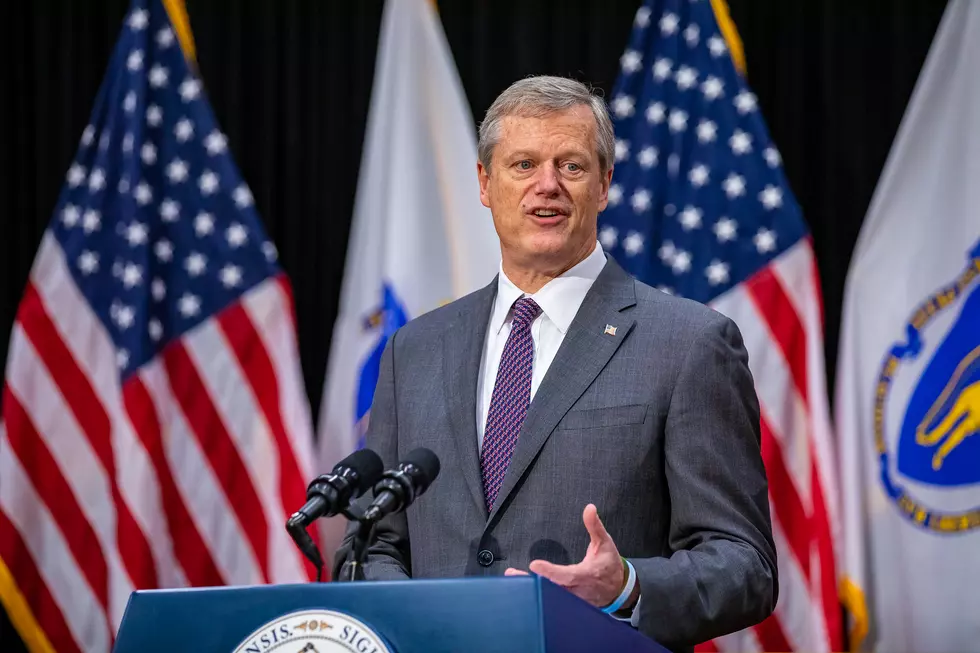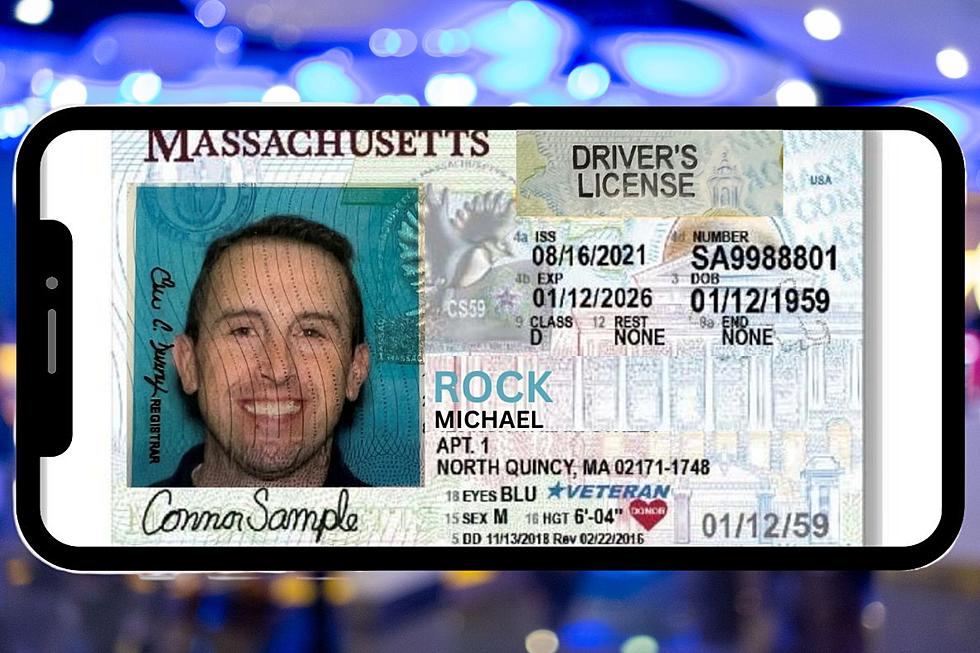
SJC Rejects Challenge to Baker’s Authority in Pandemic
Gov. Charlie Baker's extensive, executive order-fueled pandemic response is justifiable under state law and did not violate the constitutional rights of businesses and organizations affected by mandatory shutdowns, the state's highest court ruled Thursday.
Six months after the New Civil Liberties Alliance sued Massachusetts on behalf of business owners and religious institutions, the Supreme Judicial Court upheld the Baker Administration's emergency actions, concluding that the governor acted within the emergency powers afforded to governors under a 1950 law.
The consequential decision allows the state's COVID-19 strategy to continue along its current trajectory, avoiding a sudden and dramatic shift in how leaders approach the public health emergency amid rapid transmission of the highly infectious virus and dwindling hospital capacity.
Justices included a key caveat, though, that their ruling does not give blanket authorization for future health emergencies and that the governor's response might need to be curtailed once the COVID outlook improves.
"I think we've tried pretty hard to be balanced and to be as reasonable and fair as we could be in this very difficult time and very difficult circumstances and I appreciate the SJC's decision with respect to those issues," Baker said in the wake of the decision.
Representatives from NCLA and the Massachusetts Fiscal Alliance, which supported the lawsuit, told reporters Thursday that they are exploring the possibility of appealing portions of the case to the U.S. Supreme Court.
"Massachusetts has now shepherded the liberty-loving principles of the American Revolution from cradle to grave," NCLA Senior Litigation Counsel Michael DeGrandis, who argued the case before the SJC, said in a statement. "John Adams must be spinning in his tomb at the news that the colony that he and his fellow patriots fought so hard to liberate from arbitrary royal decrees, and establish as a republic grounded in a government of laws and the consent of the governed, has become what Adams feared most."
They had argued that Baker improperly based his litany of orders on powers granted under the Civil Defense Act, a 1950 state law that outlines gubernatorial emergency powers in crisis situations such as wars and natural disasters.
The CDA does not explicitly name pandemics, and that prompted Baker opponents to argue that he overstepped his limits. Instead, the plaintiffs said, local boards of health should have taken the lead on COVID response under the Public Health Act that tasks them with disease control.
In the court's view, however, the global pandemic falls clearly into the "other natural causes" category in the Civil Defense Act and creates an emergency of such a scale that it "cannot be addressed solely at the local level."
"It is clear from the language of both acts that the Legislature could not have intended the PHA, and therefore primarily local boards of health, to be exclusively responsible for addressing a public health crisis such as COVID-19, a pandemic that has killed over one million people globally and over 10,000 people in Massachusetts," Justice Elspeth Cypher wrote in the court's decision.
The health crisis also spawned a national recession. Millions of workers are jobless, and many businesses do not anticipate surviving a long winter unless they receive financial support.
However, the court ruled that Baker's forced business shutdowns and phased reopening plans do not violate constitutional due process or free assembly rights.
Decisions on what and how organizations could operate were widely applicable, not targeting individual businesses or groups, justices said. The orders also did not outright ban religious gatherings, but instead subjected them to the same gathering limits as secular institutions.
Some employers face a "larger burden," the court said, but justices concluded that does not make the restrictions arbitrary.
"The Governor is not, as the plaintiffs argue, 'donn[ing] the mantle and crown' to pick winners and losers; he is making difficult decisions about which types of businesses are 'essential' to provide people with the services needed to live and which types of businesses are more conducive to spreading COVID-19, and basing his emergency orders on those determinations," Cypher wrote.
Baker's response also did not interfere with the Legislature's role in guiding the state through a crisis, according to the court. His orders stemmed from legislative authority granted under the Civil Defense Act, and the court noted that lawmakers have not exercised their authority under that law to make the act or any part of it inoperative through the adoption of a joint resolution.
Justices pointed to several COVID response bills the House and Senate passed, including a moratorium on most evictions and foreclosures, approval for expanded take-out and delivery food and drink, and an overhaul of voting procedures.
"Therefore, not only have the emergency orders not precluded the Legislature from exercising its full authority to pass laws, but the Legislature also has at its disposal a way to curb the governor's powers under the CDA, should it desire to do so, and it has not done so," they said.
Asked whether lawmakers are interested in codifying some of the pandemic restrictions that so far have been doled out through executive order, DeGrandis replied that Massachusetts does not have "a critical mass of legislators willing to take the political risk" of passing unpopular laws.
While the court ruled that Baker has stayed within the proper lanes so far, justices stressed that the COVID-19 pandemic is a unique situation. Future health emergencies might not qualify the same way under the Civil Defense Act.
Judges did not outline a clear timeframe, but hinted that eventual improvement in the public health landscape might require Baker to scale back the emergency response.
"Although we hold that the COVID-19 pandemic falls within the CDA, we do not hold that all public health emergencies necessarily will fall within the CDA, nor do we hold that when the public health data regarding COVID-19 demonstrates stable improvement, the threshold will not be crossed where it no longer constitutes an emergency under the CDA," they wrote.
That language did not give plaintiffs any optimism. DeGrandis said he does not understand the court's rationale.
"I still think this is pretty open-ended," he said. "It's pretty easy for the next governor to declare a state of emergency with almost any health emergency, and that gives me great concern for Massachusetts."
Ten local businesses and organizations, including churches, salons and a boxing facility, sued Baker in June with the help of the New Civil Liberties Alliance, a national non-profit that describes itself as fighting the "unconstitutional administrative state."
Governors in other states have also faced challenges to their legal authority during the COVID pandemic.
In Michigan, the state's top court ruled that Gov. Gretchen Whitmer did not have authority to redeclare a state of emergency without legislative authorization to extend an earlier declaration beyond the 28 days allowable under Michigan law.
SJC justices drew a clear contrast with that case, noting that Massachusetts law does not set an explicit timeframe on states of emergency and that the CDA provides "substantially more detail and guidance to the Governor than the Emergency Powers of the Governor Act provided the Michigan Governor."
Five out of the six justices in the SJC's Thursday ruling – Cypher, Kimberly Budd, Frank Gaziano, David Lowy and Scott Kafker – were all appointed by Baker.
The sixth justice who heard oral arguments and participated in the decision, Barbara Lenk, had been the last member of the court not hand-picked by Baker before she hit the mandatory retirement age of 70 this month.
All seven justices now on the court, including new members Dalila Wendlandt and Serge Georges, are Baker appointees.
— Chris Lisinski with Matt Murphy contributing, State House News Service

More From WBSM-AM/AM 1420









